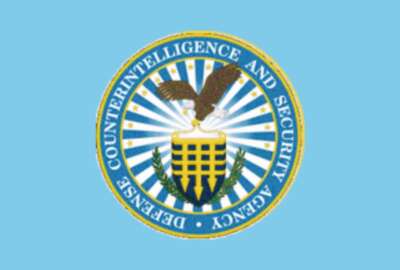Why so few people trust the merit promotion program
Only 35 percent of federal employees believe promotions in their workplace are based on merit. In his column, Jeff Neal, senior vice president for ICF Internati...
Commentary by Jeff Neal
Founder of ChiefHRO.com
& Senior Vice President, ICF International
This column was originally published on Jeff Neal’s blog, ChiefHRO.com, and was republished here with permission from the author.
In the Federal Employee Viewpoint Survey (FEVS), only 35.4 percent of respondents agreed (26.2 percent) or strongly agreed (9.2 percent) with the statement, “Promotions in my work unit are based on merit.” 36.5 percent disagreed or strongly disagreed. Some large agencies had even lower percentages of employees who agree that promotions are merit-based, such as the Defense Department (31.1 percent), Veterans Affairs (30.2 percent) and Homeland Security (20.7 percent). 
The nature of the merit promotion program is such that it is unlikely we will ever see employees routinely believing selections for promotions are based on merit, even though merit is the core of the modern Civil Service. There are several factors that drive the perceptions of unfairness:
- Most people think they are above average. I wrote last year about the surprising prevalence of illusory superiority — the tendency to underestimate our own weaknesses and overstate our own abilities. With most job announcements resulting in one selection and many rejections, the reality of that math runs head on into our biased self-perception. We believe the selectee clearly was not as good, so the system or the boss must be biased.
- The myth of “Preselection.” One of MSPB’s key findings in their 2001 report was “More often than not, before a merit promotion opportunity is announced, supervisors believe they know which employee in their organization would be the best person for the job and most of the time they select that person. Supervisors told us that during the past 2 years, 54 percent of the time they had already identified one of their own employees whom they thought they would promote into the vacancy. They also told us that 80 percent of the time they actually selected that person to fill their vacancy. Moreover, the vast majority of supervisors said that they were very satisfied with the people they chose to fill their vacancies.”
If you ask most federal employees, they will tell you their own stories about preselection. It is viewed as a commonplace occurrence because it is. So why do I call it a myth? Because there is nothing illegal or unethical about it. A manager with a vacancy who does not have a general idea about which of his/her employees would be best suited for it is probably not much of a manager. What would that manager read in a resume or hear in an interview that would trump years of working with and observing the performance of their team? There is no Prohibited Personnel Practices (PPP) that covers preselection. In fact, OPM provides for something that smells a lot like preselection in the Delegated Examining Operations Handbook — it is called a “Name Request.” A Name Request gives an applicant an advantage in the case of tie breaking. Rather than using normal tie breaking procedures, the subject of the Name Request goes on the list.
There is something similar to Preselection that is a PPP. An agency cannot manipulate the process to make certain an applicant makes it on a referral list. PPP #6 says an agency cannot “grant any preference or advantage not authorized by law, rule, or regulation to any employee or applicant for employment (including defining the scope or manner of competition or the requirements for any position) for the purpose of improving or injuring the prospects of any particular person for employment.” Knowing who you might like to select is fine — cooking the process to make certain it happens is illegal.
- Best Qualified is in the eye of the beholder. We all know that the stated intention of the Merit Promotion program (or any hiring program) is to find the best qualified candidate. One of the statutory Merit System Principles is “selection and advancement should be determined solely on the basis of relative ability, knowledge and skills, after fair and open competition which assures that all receive equal opportunity.” The concept seems so simple that applicants and observers are often surprised to find the selectee is not the person they would have called “best qualified.” When that happens, it is easy to blame it on bias, favoritism or bad judgment by the selecting official.
There is a simpler explanation that is less sinister — the selecting official’s view of what constitutes “Best Qualified” is not the same as yours. Here is a simple example: Two supervisors are filling the same type of job. The jobs are the same series, title and grade level. Supervisor A has 5 other employees who are all technically superb, but are not particularly innovative. Supervisor B has 5 other employees who are technically superb and innovative, but they are not very good at customer service. Both supervisors get the same list of applicants.
Supervisor A sees that “Betty Lou” has good technical abilities and a strong record of innovative solutions to problems. Supervisor B sees that “Bobby Ray” has good technical abilities and has received awards for customer service. Supervisor A is going to believe Betty Lou is the Best Qualified, while supervisor B is going to see Bobby Ray as Best Qualified. Neither is wrong, because their organizational needs are different. Another common example of differing perceptions of Best Qualified is the balance between technical expertise and other skills. One supervisor may believe technical ability trumps everything, while another believes interpersonal skills are equally important. There is not a right or wrong answer — just two views of what makes someone Best Qualified.
As bad as the perceptions are now, they are actually improving. MSPB’s research shows a dramatic decrease in perceptions of unfairness in the process over the last 20 years. I believe some of that progress is based upon the increased transparency in the hiring process that has been brought about by use of automated tools for candidate evaluation and the virtual elimination of the secret crediting plans for candidate evaluation that were common in the past. When applicants are provided with more information, they have a better understanding of the process. Another key factor in confidence in the Merit Promotion program is confidence in senior leaders.
Agencies whose senior leaders receive high marks from the workforce in FEVS also have higher confidence in the fairness of the promotion process. That tells me the keys to more credible promotion programs are quality leaders and increased transparency in every step of the promotion process. Transparency can take the form of clear and valid applicant questionnaires, vacancy announcements that provide real insight into what the agency is looking for, and better interview processes. One step that few agencies take is asking peers of the job being filled to participate in the interview process.
Illusory superiority and the varying perceptions of what makes someone Best Qualified probably mean we are unlikely to ever get to the point where large majorities of employees believe promotions are based on merit. That does not mean we should stop trying. The experiences of those agencies with 50% or more positive ratings on their promotion outcomes gives me hope that we can at least get the federal government to the point where there are more employees who trust the process than employees who do not. That would be a big step forward from where we are today.
Jeff Neal is a senior vice president for ICF International and founder of the blog, ChiefHRO.com. Before coming to ICF, Neal was the chief human capital officer at the Department of Homeland Security and the chief human resources officer at the Defense Logistics Agency.
MORE COMMENTARY FROM JEFF NEAL:
The good news from the Federal Employee Viewpoint Survey
Federal Employee Viewpoint Survey: The price of mistrust
Should we bring back the rule of three?
Copyright © 2024 Federal News Network. All rights reserved. This website is not intended for users located within the European Economic Area.





